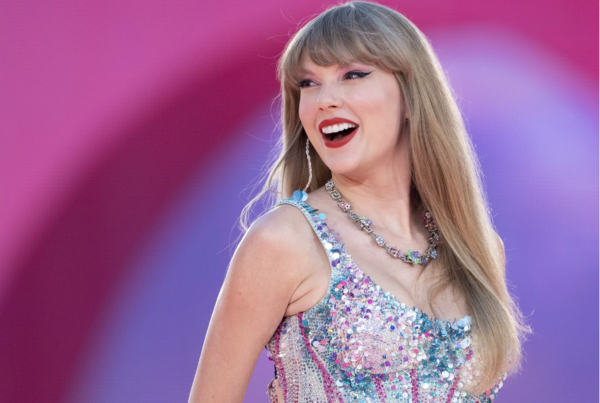The music industry has witnessed a seismic shift in how artists connect with their audience and market their music. This guide aims to explore innovative strategies for music marketing in the digital age, focusing on methods that steer clear of traditional pitfalls such as playlist pitching, social media algorithm chasing, and reliance on high-budget resources. We delve into emerging trends that empower artists to retain their authenticity while effectively promoting their music.

Embracing Decentralized Music Platforms
The emergence of decentralized music platforms like Opulous signifies a significant change in music marketing, offering artists a direct connection with fans and bypassing traditional industry middlemen. These platforms are not just distribution channels but a new paradigm in fan engagement, allowing artists to create and share music while building a community invested in their success.
Artists can leverage blockchain technology on platforms like Opulous to offer fans unique experiences and rewards, ranging from exclusive access to tracks to ownership stakes in the music. This direct-to-fan approach deepens the connection between artists and their audience, making fans active participants in the artist's journey.
Artists maintain control over their brand identity on these platforms, enabling them to stay true to their artistic vision. The crowdfunding aspects integrated into these platforms open new avenues for project financing, democratizing the music industry and allowing independent artists to find a supportive community.
Data analytics tools on these platforms help artists gain audience insights, ensuring fair compensation and redefining the fan-artist relationship as a collaborative creative process.
Leveraging Emerging Digital Trends
Understanding and leveraging current digital trends like the blockchain revolution in music is crucial for artists. Immersive experiences, such as virtual concerts, have become increasingly significant in the post-pandemic world. Strategic use of short-form video content on platforms like TikTok can be effective without the need for daily content.
Authentic collaborations with influencers or other artists can reach new audiences, while user-generated content can create organic engagement and virality. Podcast appearances or hosting can showcase an artist's personality, and email marketing remains a potent tool for direct communication with fans.
Storytelling is powerful in creating a personal connection with the audience, making the music more relatable. Data analytics inform targeted marketing strategies, and innovative approaches like augmented reality (AR) and virtual reality (VR) can create unique experiences, setting an artist apart in the digital landscape.

To navigate music marketing in the digital age, artists need creativity, authenticity, and a willingness to explore new technologies and platforms. By leveraging decentralized platforms like Opulous and staying updated with digital trends, artists can promote their music while maintaining their unique brand identity.
The key is creating a genuine connection with the audience, transforming them from passive listeners into active participants in the artist's journey.
A Practical Plan of Action for Artists in Digital Music Marketing
Step 1: Establish Your Presence on Decentralized Music Platforms
- Research and Choose a Platform: Begin by researching decentralized platforms like Opulous. Choose one that aligns with your music genre and audience.
- Create a Profile: Set up your artist profile. Ensure it's complete with your bio, music catalog, and links to your social media or website.
- Engage with the Community: Regularly engage with the community. Respond to comments, participate in discussions, and collaborate with other artists.
Step 2: Utilize Emerging Digital Trends
- Immersive Experiences: Plan at least one virtual event, like a concert or Q&A session. Use platforms like Twitch, YouTube Live, or specialized VR platforms.
- Short-Form Video Content: Create and share short-form videos that showcase your music or behind-the-scenes content. Aim for one video per week.
- Collaborations and Influencer Marketing: Identify and reach out to influencers or artists with a similar audience for collaborations. Plan a collaborative project, like a joint track or social media takeover.
Step 3: Build and Engage Your Fanbase
- User-Generated Content Campaigns: Launch a campaign encouraging fans to create content with your music. For instance, a dance challenge or cover contest.
- Email Marketing: Build an email list. Offer an exclusive track or early access to new releases as an incentive for signing up. Send out monthly newsletters with updates, exclusive content, or upcoming events.
- Storytelling: Share your journey and experiences through your social media posts or blog entries. Focus on authentic stories that resonate with your audience.
Step 4: Leverage Data Analytics
- Analyze Audience Insights: Regularly review the analytics provided by your chosen platforms. Understand your audience's demographics, preferences, and engagement patterns.
- Tailored Marketing Strategies: Use these insights to tailor your content and marketing strategies. For instance, if your audience engages more with live performances, plan more live-streamed events.
Step 5: Innovate with Technology
- Artificial Intelligence: Explore AI music promotion services to leverage automated, highly-efficient paid advertising opportunities.
- Explore AR/VR: Research and find ways to incorporate AR or VR into your music experience. This could be as simple as an AR filter for social media or as complex as a fully immersive VR music video.
- Regularly Update Your Approach: Stay updated with the latest technological trends and be open to experimenting with new tools and platforms.
Step 6: Maintain Authenticity and Brand Identity
- Stay True to Your Artistic Vision: While experimenting with different strategies, ensure that all your marketing efforts align with your brand identity and artistic vision.
- Regular Self-Assessment: Periodically assess whether your marketing strategies are in line with your authentic self. Adjust as necessary.
The information provided in this communication is not financial advice and should not be treated as such. It is for entertainment purposes only and is not intended to be a recommendation or solicitation to buy or sell any securities or other financial instruments. You should do your own research and seek professional financial advice before making any investment decisions. Please consult a professional for specific advice. None of the information provided should be construed as legal advice.




